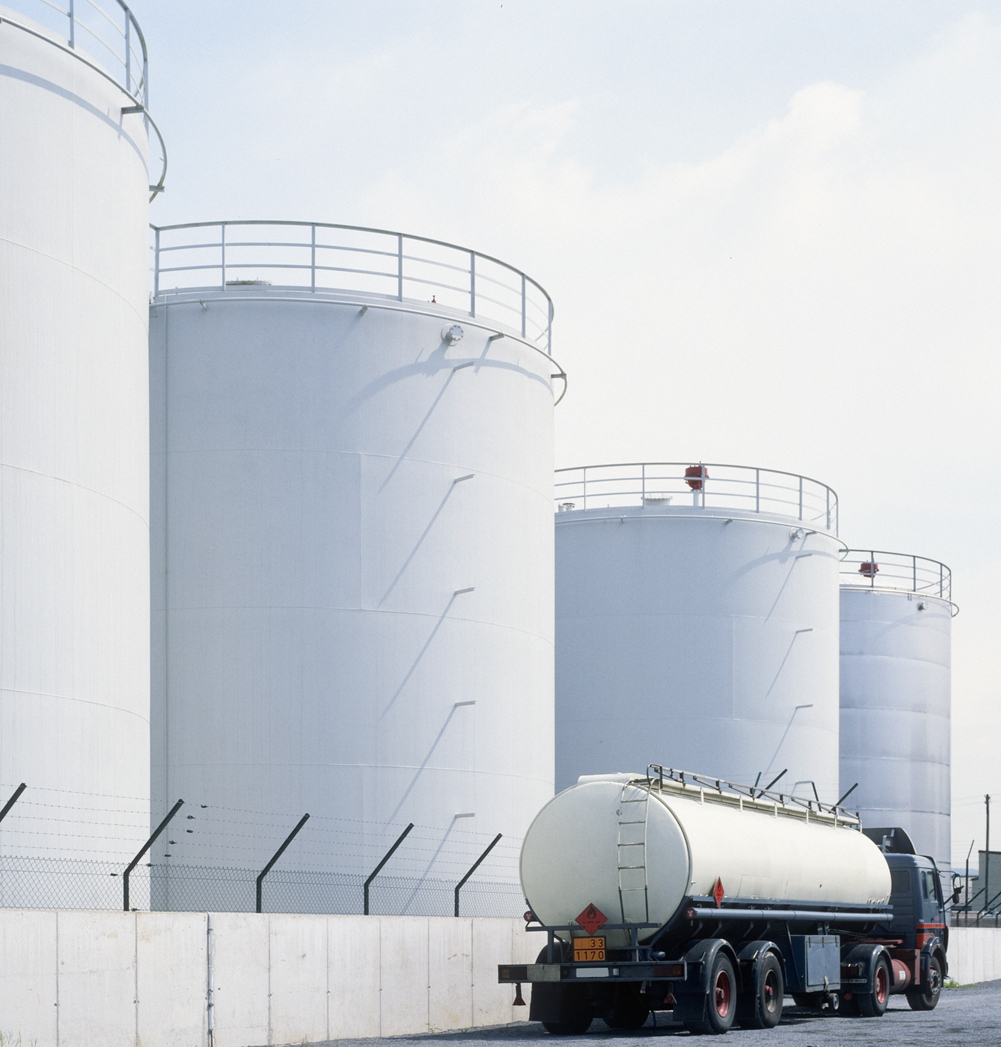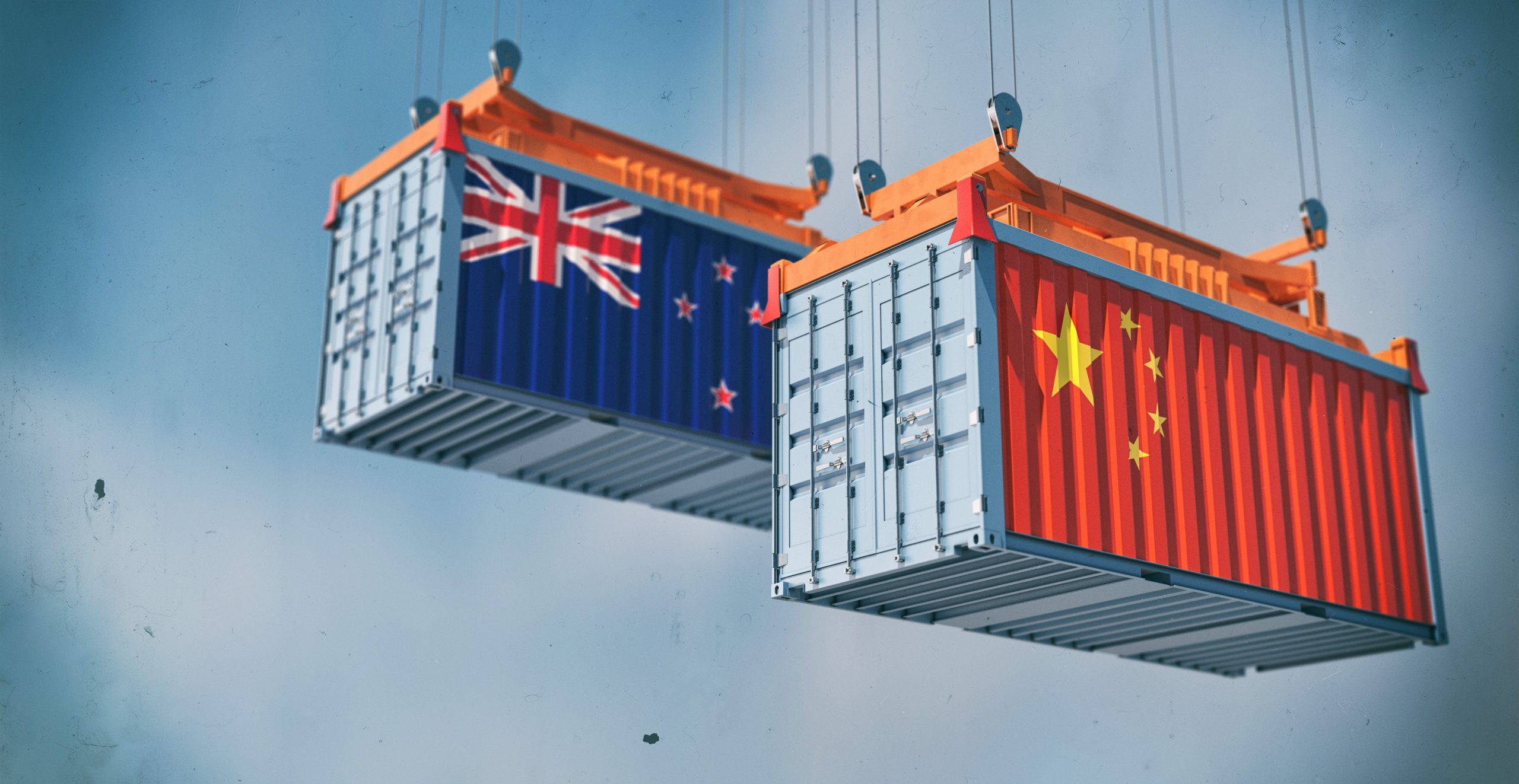Protecting Your Facility: The Importance of Process Area and Facility Leak Detection in Nigeria
Protecting Your Facility: The Importance of Process Area and Facility Leak Detection in Nigeria
Nigeria’s industrial sector is booming, with facilities popping up left and right. But with this growth comes the potential for leaks and spills that could harm both the environment and your bottom line. In this blog post, we’ll explore why process area and facility leak detection are crucial for protecting your operation in Nigeria. Stay tuned to learn how you can safeguard your facility against costly disasters.
Introduction to Process Area and Facility Leak Detection in Nigeria
Introduction to Process Area and Facility Leak Detection in Nigeria
Nigeria, being one of the largest oil-producing countries in Africa, has a significant number of industrial facilities such as refineries, petrochemical plants, and pipelines. These facilities are crucial for the production and transportation of oil and gas, which are the main sources of revenue for the country. However, with this high level of industrial activity comes a great risk of leaks that can have devastating impacts on human health, safety, and the environment.
Process area and facility leak detection play a critical role in mitigating these risks by identifying and preventing leaks before they escalate into major accidents. In this section, we will discuss what process area and facility leak detection mean in Nigeria and why they are essential for protecting your facility.
What is Process Area Leak Detection?
Process area leak detection refers to the monitoring and identification of abnormal emissions or releases from process equipment within an industrial facility. These can include leaks from valves, pumps, pipelines, compressors, or any other equipment involved in the production process.
In Nigeria’s context, where most facilities deal with highly flammable substances such as crude oil and natural gas, even small leaks can quickly turn into catastrophic incidents due to their explosive nature. Therefore, early detection is crucial to prevent accidents that could result in loss of life or extensive damage to property.
What is Facility Leak Detection?
Facility leak detection involves monitoring areas outside the main process units such as storage tanks or loading/unloading terminals for potential leaks. These areas usually have large storage capacities containing hazardous substances that can pose significant risks if leaked.
For instance, in 2019 alone, there were several reports of pipeline explosions at various fuel depots across Nigeria due to leakage during loading operations. These incidents resulted in multiple fatalities and severe environmental pollution.
Why is Process Area and Facility Leak Detection Important?
The importance of process area and facility leak detection cannot be overstated when it comes to protecting your facility in Nigeria. These systems not only help prevent accidents but also have other benefits, such as:
1. Maintaining Regulatory Compliance: In Nigeria, there are strict regulations and standards set by the Department of Petroleum Resources (DPR) for industrial facilities to adhere to regarding leak detection and prevention. Failure to comply with these regulations can lead to fines, shutdowns, or even revocation of operating licenses.
2. Cost Savings: Early detection of leaks can significantly reduce repair costs and production losses that may result from an unplanned shutdown due to a major incident.
3. Environmental Protection: Leaks from industrial facilities can have severe environmental impacts, especially in sensitive areas such as water bodies and agricultural lands. Leak detection systems help prevent these incidents from occurring and minimize their consequences when they do happen.
Process area and facility leak detection are crucial components of any industrial operation in Nigeria. They not only protect your facility, but also ensure compliance with regulatory requirements, save costs, and safeguard the environment. In the next section, we will discuss the different types of leak
Why is Leak Detection Important?
Leak detection is a crucial aspect of maintaining the safety and functionality of any facility, especially in a country like Nigeria where industrial processes are prevalent. A leak can occur at any time and in any place within a facility, posing serious threats to both the environment and human health. This is why it is important to have proper systems in place for regular process area and facility leak detection.
One of the main reasons why leak detection is important is because it helps prevent potential disasters. Leaks can lead to fires, explosions, and chemical releases that not only cause significant damage but also put lives at risk. In fact, according to a report by the National Fire Protection Association (NFPA), an average of 37,000 fires occur annually in industrial or manufacturing properties in the United States alone. These fires result in an average loss of $1 billion each year.
In addition to preventing disasters, leak detection also plays a vital role in protecting the environment. Leaks from industrial facilities often contain hazardous substances that can contaminate soil, water sources, and air quality. This not only affects local ecosystems but also has far-reaching consequences for communities surrounding the facility. Furthermore, leaking gases such as methane contribute to climate change and global warming.
Moreover, early detection of leaks can also save businesses money by preventing costly repairs or fines due to non-compliance with environmental regulations. When leaks are left undetected for extended periods of time, they can cause extensive damage to equipment and infrastructure which then requires expensive repairs or even replacements.
Another reason why leak detection is crucial is because it allows for prompt response during emergency situations. With proper systems in place for detecting leaks, facility managers can quickly identify the source and location of a leak and take immediate action to mitigate its effects before they escalate into larger issues.
Furthermore, regular leak detection procedures also ensure that facilities are operating efficiently with minimal waste or losses due to undetected leaks. This helps businesses maintain their bottom line and remain competitive in the market.
Leak detection is an essential aspect of facility management that helps prevent disasters, protect the environment, save money, and enable prompt response during emergencies. It is crucial for businesses to prioritize process area and facility leak detection in Nigeria to ensure the safety of their employees, communities, and the environment.
The Role of Wigmore Trading in Leak Detection
The Role of Wigmore Trading in Leak Detection
When it comes to protecting your facility from leaks and potential hazards, having a reliable partner like Wigmore Trading can make all the difference. As one of Nigeria’s leading suppliers of industrial materials and equipment, Wigmore Trading offers a comprehensive range of leak detection solutions that are essential for any facility.
First and foremost, Wigmore Trading provides top-of-the-line leak detection equipment that is designed to identify leaks quickly and accurately. This includes advanced technologies such as ultrasonic detectors, infrared cameras, and gas analyzers, which can detect even the smallest leaks in pipes, tanks, and other critical areas of your facility.
But beyond just providing equipment, Wigmore Trading also offers expert advice on how to implement an effective leak detection program in your facility. With their vast knowledge and experience in the industry, their team can help you assess your current systems and processes to determine any potential areas of concern. They can then provide recommendations on how to improve or upgrade your leak detection methods for maximum efficiency.
One crucial aspect where Wigmore Trading plays a significant role is in training facility staff on proper leak detection procedures. Often overlooked but essential for the success of any leak detection program, proper training ensures that employees know how to use the equipment correctly and understand the importance of early detection.
In addition to their expertise in leak detection technology, Wigmore Trading also offers high-quality sealing compounds that are vital for preventing leaks from occurring in the first place. These compounds are specially designed for various types of pipelines and can withstand extreme temperatures and pressure changes without compromising their integrity.
Moreover, when it comes to repairs or maintenance work involving leaking pipes or tanks within your facility, you can count on Wigmore Trading’s prompt delivery service for replacement parts. This minimizes downtime at your facility while ensuring that any potential risks are promptly addressed.
Having Wigmore Trading as a partner in your facility’s leak detection efforts can provide you with the peace of mind that your facility is well-protected against any potential leaks. With their top-of-the-line equipment, expert advice and training, high-quality sealing compounds, and prompt delivery service, you can be confident that your facility is in safe hands.
Types of Leak Detection Methods
There are several types of leak detection methods that can be used to protect your facility and ensure the safety of your staff in Nigeria. Each method has its own advantages and limitations, so it is important to understand the different options available and choose the one that best suits your specific needs.
1. Visual Inspection: This is the most basic form of leak detection, where trained personnel visually inspect the process area for any signs of leakage such as discolored surfaces, drips, or puddles. While this method may seem simple, it requires skilled workers who are familiar with potential leak points and have a keen eye for spotting leaks. It is also time-consuming and may not be effective in detecting small leaks or those hidden in hard-to-reach areas.
2. Ultrasonic Testing: This method uses high-frequency sound waves to detect leaks by measuring changes in sound patterns caused by escaping gas or liquid. The advantage of ultrasonic testing is that it can detect both large and small leaks, even those that are not visible to the naked eye. However, it does require specialized equipment and trained technicians to interpret the results accurately.
3. Gas Detection Sensors: These sensors are designed to detect specific gases used in industrial processes such as methane, hydrogen sulfide, or ammonia. They continuously monitor the air quality in an area and trigger alarms if there is a sudden increase in concentration levels indicating a potential leak. While this method is reliable and can quickly notify personnel about dangerous gas leaks, it does require regular maintenance and calibration to ensure accuracy.
4. Pressure Monitoring: In this method, pressure gauges are installed at strategic points throughout the process area to measure any changes which could indicate a leak. A sudden drop in pressure could indicate a leak while an increase could suggest blockages or other issues within your systems. Regularly monitoring pressure levels can help identify potential problems early on before they escalate into major issues.
5. Thermal Imaging: This non-intrusive method uses infrared cameras to detect temperature changes in equipment or pipes, which could indicate a possible leak. This is especially useful for detecting leaks in hidden or hard-to-reach areas and can help identify potential issues before they become serious.
Implementing a comprehensive leak detection plan that combines multiple methods can effectively protect your facility from potential leaks and ensure the safety of your employees. It is essential to regularly train staff on how to use these methods and conduct regular maintenance checks to ensure their effectiveness. By investing in proper leak detection methods, you can avoid costly downtime, environmental damage, and most importantly protect the health and well-being of your team.
Advantages of Using Wigmore Trading for Leak Detection
Wigmore Trading offers a wide range of benefits for companies in Nigeria that are looking to improve their facility leak detection processes. In this section, we will explore the advantages of using Wigmore Trading for leak detection and how it can help protect your facility.
1. High-Quality Products: One of the main advantages of using Wigmore Trading for leak detection is the availability of high-quality products. Their range includes top-of-the-line equipment such as gas detectors, thermal imaging cameras, and ultrasonic leak detectors. These products are designed to detect even the smallest leaks accurately and efficiently, ensuring that your facility remains safe from potential hazards.
2. Expertise and Experience: With over 30 years of experience in the industry, Wigmore Trading has established a reputation for being a reliable supplier of quality leak detection products in Nigeria. Their team consists of highly trained professionals who have extensive knowledge about various types of leaks and how to effectively detect them. By choosing Wigmore Trading, you can benefit from their expertise and ensure that your facility is protected from any potential leaks.
3. Tailored Solutions: Every facility has its unique requirements when it comes to leak detection. At Wigmore Trading, they understand this fact and offer tailored solutions according to your specific needs. They work closely with their clients to understand their facilities’ layout and identify any potential areas where leaks may occur. This allows them to provide customized solutions that meet your facility’s specific requirements.
4. Cost-Effective: Investing in quality leak detection equipment is crucial for protecting your facility; however, it can also be expensive if you do not choose the right supplier. With Wigmore Trading, you can get access to top-notch products at competitive prices without compromising on quality or performance. This makes it a cost-effective solution for companies looking to enhance their leak detection processes without breaking the bank.
5.Better Safety Standards: Leaks in industrial facilities can pose significant safety risks for employees and the environment. By using Wigmore Trading’s products, you can ensure that your facility is equipped with the latest and most efficient leak detection technology. This will not only help in preventing potential accidents but also improve your overall safety standards.
Wigmore Trading offers a comprehensive range of benefits for companies in Nigeria looking to enhance their facility leak detection processes. With high-quality products, expertise, tailored solutions, cost-effectiveness, and improved safety standards, it is an ideal choice for protecting your facility from potential leaks. Make sure to consult with Wigmore Trading for all your leak detection needs and keep your facility safe from any hazards.
Case Studies: Real-Life Examples of Successful Leak Detection by Wigmore Trading
Case Studies: Real-Life Examples of Successful Leak Detection by Wigmore Trading
At Wigmore Trading, we understand the critical importance of reliable leak detection systems for process area and facility safety in Nigeria. That’s why we have been providing high-quality leak detection solutions to industries across the country for decades. Our expertise and experience have helped numerous facilities prevent potential hazards and costly downtime caused by leaks.
Here are some real-life examples of successful leak detection projects undertaken by Wigmore Trading:
– Oil Refinery in Lagos:
One of our biggest success stories is our collaboration with a major oil refinery in Lagos, Nigeria. The refinery was facing frequent leaks and spills that were not only causing environmental damage but also hampering their production process. Our team conducted a thorough assessment of their facility and identified various vulnerable areas where leaks were likely to occur.
We installed our state-of-the-art leak detection system, which includes advanced sensors, monitoring software, and alarms, throughout the refinery. This enabled the facility managers to detect any leakage or spillage at its initial stage before it could escalate into a major disaster. As a result, they were able to take immediate corrective actions, preventing any harm to their employees or the environment.
– Chemical Plant in Port Harcourt:
Another notable example is our partnership with a chemical plant located in Port Harcourt. The facility produces various chemicals used in different industries, making it crucial for them to maintain high levels of safety standards. However, they had been experiencing frequent leaks from their pipelines due to corrosion.
Our team installed ultrasonic leak detectors along with real-time monitoring systems at strategic points within their pipelines network. These detectors could detect even the smallest leaks accurately and send alerts immediately to the plant managers’ devices via SMS or email notifications. This allowed them to locate the exact source of leakage quickly and take timely actions before it could cause any significant damage.
– Food Processing Plant in Abuja:
Wigmore Trading has also helped a food processing plant in Abuja enhance their safety protocols by installing our advanced leak detection systems. The facility was facing frequent leaks from their storage tanks, which could potentially contaminate the food products and pose a health risk to consumers.
We installed our non-intrusive laser-based leak sensors that could detect any leakage without coming into contact with the product. This ensured the safety of their products while also eliminating the need for frequent shutdowns for manual inspections.
These case studies highlight how Wigmore Trading’s leak detection solutions have played a crucial role in protecting facilities and preventing potential hazards in Nigeria. Our reliable and cost-effective systems have not only enhanced safety standards but also helped businesses save on downtime and maintenance costs.
How to Implement a Comprehensive Leak Detection Plan in Your Facility
Implementing a comprehensive leak detection plan in your facility is crucial for ensuring the safety and security of your staff, community, and environment. With Nigeria’s growing industrial sector and increasing concern for environmental protection, it is imperative that facilities have an effective leak detection plan in place.
Step 1: Identify Potential Leak Sources
The first step in implementing a comprehensive leak detection plan is to identify potential sources of leaks in your facility. This can include pipelines, storage tanks, valves, pumps, and other equipment that handle hazardous substances. It is important to thoroughly inspect all equipment and assess the likelihood of leaks occurring from each source.
Step 2: Conduct Regular Inspections
Regular inspections are essential for detecting leaks early on before they escalate into larger issues. These inspections should be conducted by trained personnel who are familiar with the equipment and its potential failure points. Inspections should also be performed after any maintenance or repairs have been done on the equipment.
Step 3: Invest in Technology
Incorporating technology into your leak detection plan can greatly enhance its effectiveness. There are various types of advanced sensors available on the market that can detect even the smallest leaks in real-time. These sensors can be integrated into a central monitoring system, providing continuous monitoring and alerts if any leaks are detected.
Step 4: Train Staff on Emergency Procedures
Having a well-trained team that knows how to respond during emergency situations is crucial for containing leaks and minimizing their impact. All staff members should be aware of emergency procedures, including how to shut off valves or isolate areas where a leak has occurred.
Step 5: Implement Preventative Maintenance Practices
Preventative maintenance practices such as regular equipment servicing and replacement of worn-out parts can significantly reduce the risk of leaks occurring in your facility. Keeping up with routine maintenance tasks ensures that all equipment is functioning properly and helps identify any potential issues early on.
Step 6: Develop Contingency Plans
Despite our best efforts, leaks can still occur. That is why it is crucial to have contingency plans in place for how to respond and mitigate the effects of a leak. These plans should include steps for containing the leak, evacuating personnel, and notifying relevant authorities.
Implementing a comprehensive leak detection plan requires a combination of careful assessment, regular inspections, advanced technology, well-trained staff, preventative maintenance practices, and contingency planning. By following these steps and continuously evaluating and updating your plan as needed, you can ensure the safety of your facility and surrounding community while also protecting the environment.
Conclusion: The Importance of Regular Leak Detection for Facility Protection
Conclusion: The Importance of Regular Leak Detection for Facility Protection
Regular leak detection is a crucial aspect of facility protection in Nigeria. Leaks can occur in various parts of a facility, from pipelines and storage tanks to process equipment and valves. These leaks not only pose a threat to the environment but also to the health and safety of employees and nearby communities.
The importance of regular leak detection cannot be overstated. By detecting leaks early on, facilities can prevent costly damages, avoid regulatory fines, and maintain their reputation as responsible corporate citizens. Additionally, with the increasing focus on sustainability and environmental stewardship, regular leak detection is essential in minimizing the impact of facilities on the surrounding ecosystem.
Furthermore, in today’s competitive business landscape, any disruption or shutdown due to a major leak can result in significant financial losses for a company. Regularly monitoring for leaks through advanced technologies such as infrared cameras or acoustic sensors can help identify potential issues before they escalate into more extensive problems that require expensive repairs or replacements.
Moreover, regular leak detection plays a crucial role in ensuring compliance with government regulations regarding emissions and pollution control. In Nigeria specifically, there are strict laws governing oil spills and leaks due to its heavy reliance on the oil industry. Failure to comply with these regulations can result in hefty fines or even criminal charges against facility owners.
Apart from protecting the facility itself, regular leak detection also safeguards neighboring communities from potential hazards. Toxic chemicals or gases released from leaks can cause serious health concerns for those living or working nearby. By regularly monitoring for leaks and promptly addressing them, facilities can prevent any harm to individuals living near their premises.
It is evident that regular leak detection is vital for protecting facilities in Nigeria. It not only helps mitigate environmental impact but also ensures employee safety and maintains compliance with regulations. Investing in advanced technology for leak detection may seem costly initially; however, it ultimately saves companies money by preventing major damages or disruptions. Thus, it is essential for facilities in Nigeria to prioritize regular leak detection as part of their overall risk management strategy.








Comments are closed.